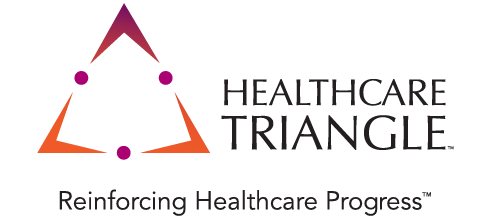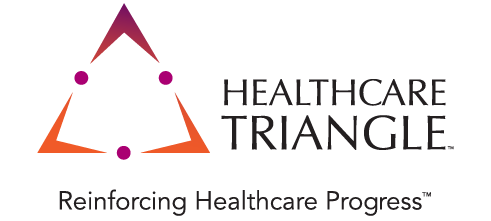Healthcare Triangle, Inc. What Does Cloud Adoption Look Like in Healthcare? CHIME Survey Reveals Key Trends
While 82% of healthcare IT executives surveyed by CHIME say their organizations rely on the cloud in some way, 47% say it’s too early to pinpoint the value from their investment.
PLEASANTON, Calif., Oct. 21, 2021 (GLOBE NEWSWIRE) — Healthcare Triangle Inc., (Nasdaq: HCTI) (“HCTI” or the “Company”) a leading provider of cloud and data transformation solutions in healthcare and life sciences, reveals key trends in CHIME Survey. More than 60% of healthcare IT executives say their organization is taking a hybrid approach to cloud operations—part cloud, part on premise—with just under 18% saying they are not yet ready to make the move to the cloud, according to a recent CHIME survey.
The College of Healthcare Information Management Executives (CHIME) is an organization created to serve the professional development needs of CIOs working in the healthcare industry and to promote effective information management. An online survey of CHIME members conducted in July 2021 shows 61 of the healthcare IT execs surveyed have adopted a hybrid approach to cloud adoption. Nearly 10% say they are “all in” on the public cloud. About 11% rely on a private-cloud approach.
But determining the value from healthcare cloud investments is still a work in progress. While 45% say they are getting value from their cloud investment, 47% say it’s too early to tell if their investment is providing value. Among these respondents, one commented that the organization’s mostly software-as-a-service approach to the cloud had resulted in “overall good results.” Another stated, “We are getting what we can afford from the Epic private cloud.”
“With the healthcare cloud computing market expected to reach $64.7 billion by 2025, ensuring the value of cloud investments—from the selection of a cloud provider to managing the cloud platform—is a key challenge for healthcare organizations,” says Ashleigh Rogers, Vice President, Healthcare for Healthcare Triangle, a leading provider of cloud transformation solutions. “Capturing the expected value from the move to the cloud requires that healthcare IT leaders manage their cloud platform differently than they would a data center, combining best practices in software development and IT operations. They must also staff their transition to the cloud with the right talent.”
The complexity involved in navigating these challenges is one reason why an increasing number of healthcare organizations are beginning to take a managed services approach to overseeing their cloud investment. “A strong cloud foundation is a critical element of digital transformation, yet many healthcare organizations struggle with aspects of cloud adoption, from the cultural shift that the move to the cloud entails to compliance challenges,” says Suresh Venkatachari, CEO of Healthcare Triangle. “Securing specialized support from a managed cloud services team empowers healthcare organizations to fully leverage their investment for optimal value.”
Other survey findings of note include the following:
- Just under half of healthcare organizations surveyed (48%) are moving data recovery and backup to the cloud to protect the security of patients’ protected health information against phishing, hacking, and ransomware attacks.
- When asked how soon they plan to make the move to the cloud if their organization has not already done so, 43.5% of healthcare IT executives say their organization will do so within the next two years, while 21% anticipate this transition will take place within the next three to five years. However, nearly 36% of those who haven’t invested in the cloud say they don’t plan to make the move at all
- When it comes to leveraging the public cloud, nearly 39% of healthcare IT executives have no interest in doing so. About 25% of respondents cite lack of IT resources to support the move to the public cloud as a barrier to public cloud adoption. Another 23% say lack of financial resources keep them from making this move.
- Most organizations believe they do a good job of securing protected health information (PHI), but they also believe they could do better (56.45%). Just 21% would describe the level of protection they provide as “exceptionally secure.” Nearly 23% are actively looking for another solution for securing PHI. At the same time, nearly 73% of healthcare IT executives surveyed say their organization has been the victim of phishing, hacking, or ransomware attacks.
For more information, visit www.healthcaretriangle.com/.
About Healthcare Triangle, Inc. (HCTI)
Healthcare Triangle, based in Pleasanton, Calif., reinforces healthcare progress through breakthrough technology and extensive industry knowledge and expertise. We support healthcare organizations—including hospitals and health systems and health plans—as well as pharma and life sciences organizations, in their efforts to improve health outcomes. Healthcare Triangle enables the rapid adoption of new technologies, data enlightenment, business agility, and response to immediate business needs and competitive threats. The highly regulated healthcare and life sciences industries rely on Healthcare Triangle for expertise in digital transformation encompassing the cloud, security and compliance, data lifecycle management, healthcare interoperability, and clinical and business performance optimization. For more information, visit HealthcareTriangle.com.
Healthcare Triangle, Inc. Contact:
For Media Enquiries:
Michael Campana
michael.c@healthcaretriangle.com
Healthcare Triangle, Inc. Investor Relations:
John McNamara
john@tradigitalir.com
917-658-2602

